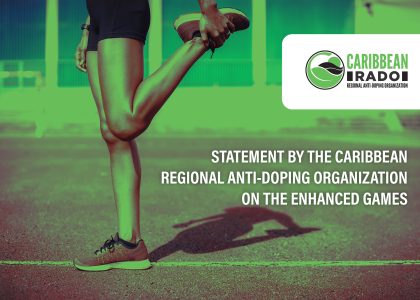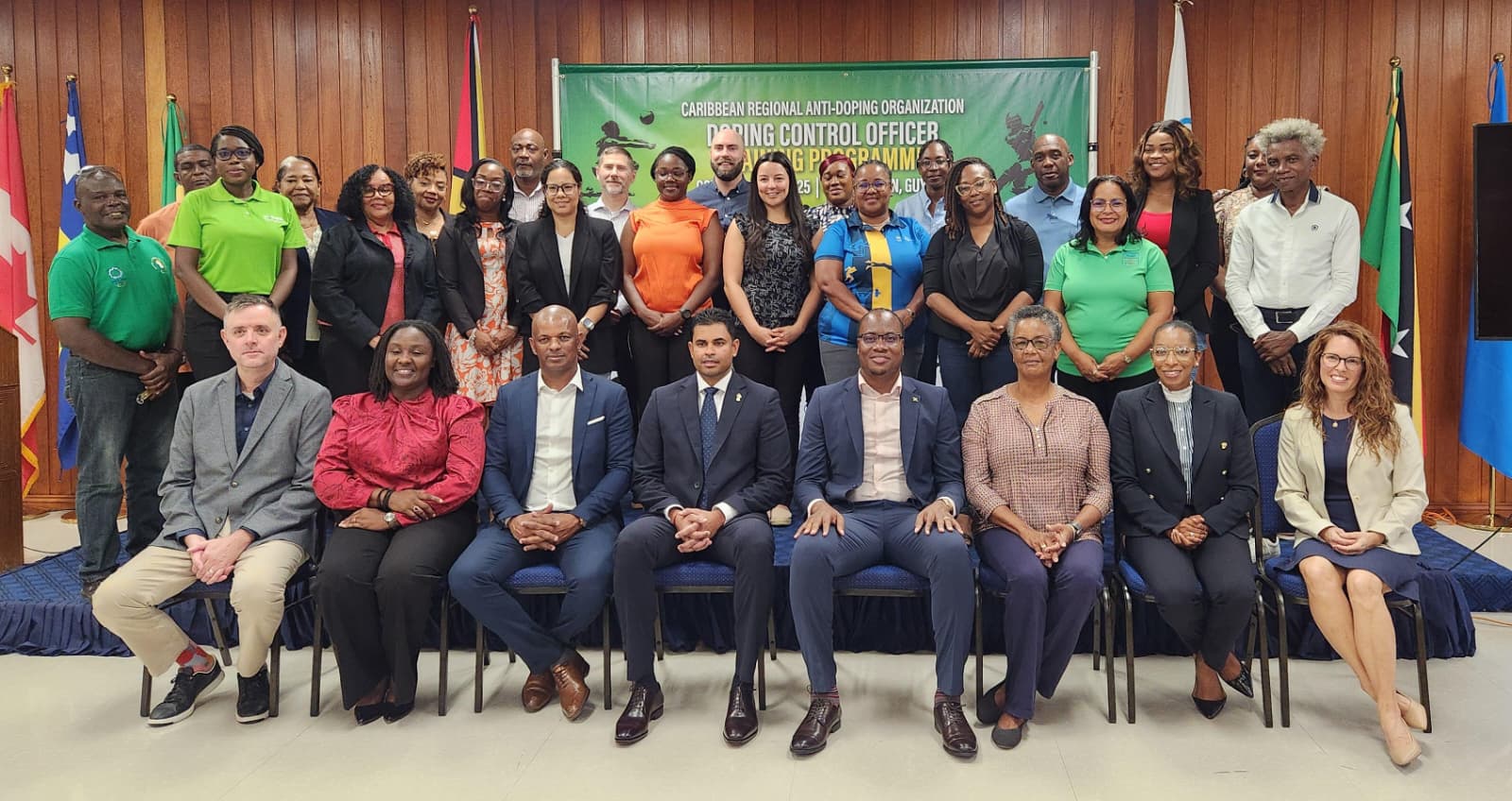
The Caribbean Regional Anti-Doping Organization (Caribbean RADO) in conjunction with the Guyana Olympic Association (GOA), and the World Anti-Doping Agency (WADA), has successfully hosted a Regional Doping Control Officer (DCO) Training Programme in Georgetown, Guyana. Twenty (20) delegates from ten (10) different Caribbean countries took part in the intensive three-day programme which was facilitated by expert trainers from the Canadian Centre for Ethics in Sport (CCES) from October 24-26, 2025.
The programme, targeting the training of new DCOs, comes at a critical time as countries prepare to execute their doping control testing and anti-doping education programmes ahead of a busy 2026 sporting calendar which includes the CAC Games in the Dominican Republic, the Commonwealth Games in Scotland and the Youth Olympic Games in Senegal.
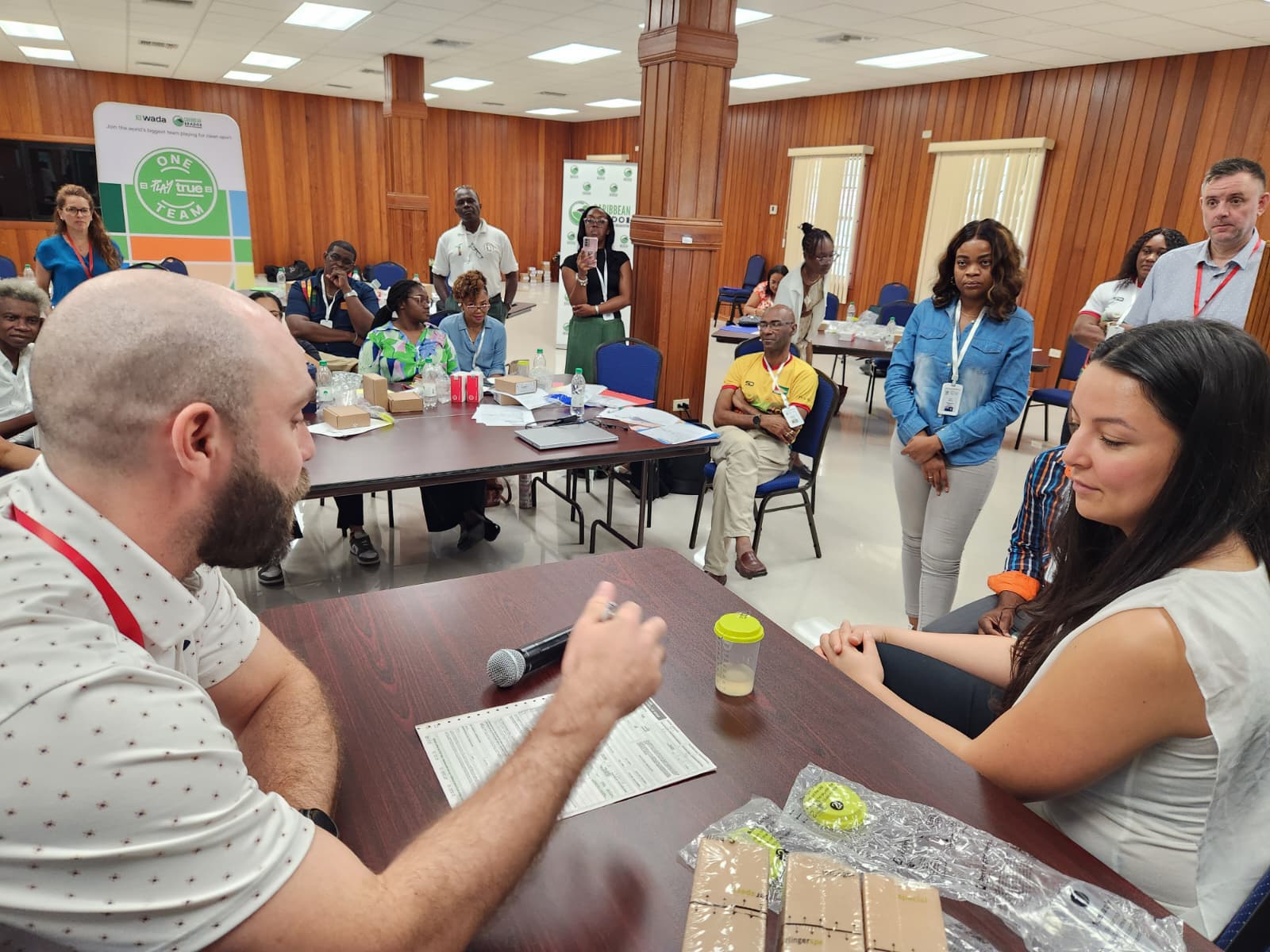
Dr. Karen Pilgrim, Chairperson of the Caribbean RADO, has said this kind of capacity building is high on her agenda.
“Some of our member countries have had challenges with the number of available DCOs. During my tenure, I hope to focus on capacity building, and this is the beginning of that process. I hope to see an increase in available human resources,” said Pilgrim.
“I know it’s a little more difficult to have financial resources injected into our local NADOs [National Anti-Doping Organizations], be it NOCs [National Olympic Committees] functioning as NADOs or independent NADOs. However, we need to ensure we have the capacity because there’s no point in setting up structures, without the personnel to do the job,” she added.
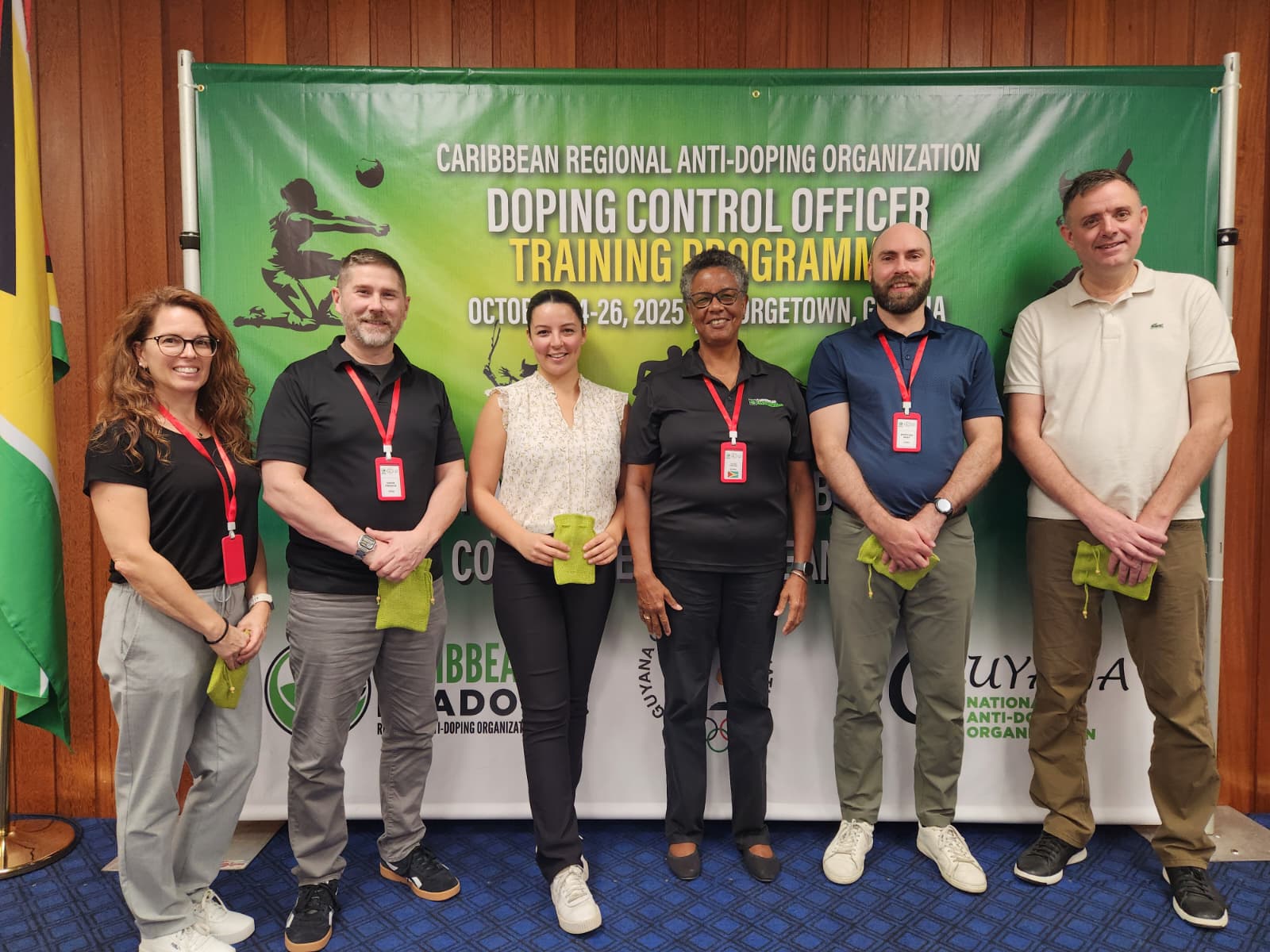
Matthew Koop, Director of Anti-Doping Services for CCES outlined that in addition to being beneficial to the region, these types of collaborations are also crucial for the Canadian-based anti-doping body.
“Helping to increase capacity around the world in the fight against doping is central to our organization. We have athletes who train and compete globally, so to be able to ensure that we are contributing to other countries improving their testing programmes and doing more testing is important. When our athletes are in different countries, this also supports and contributes to their training, ensuring that the level playing field is being maintained for all athletes globally,” said Koop.
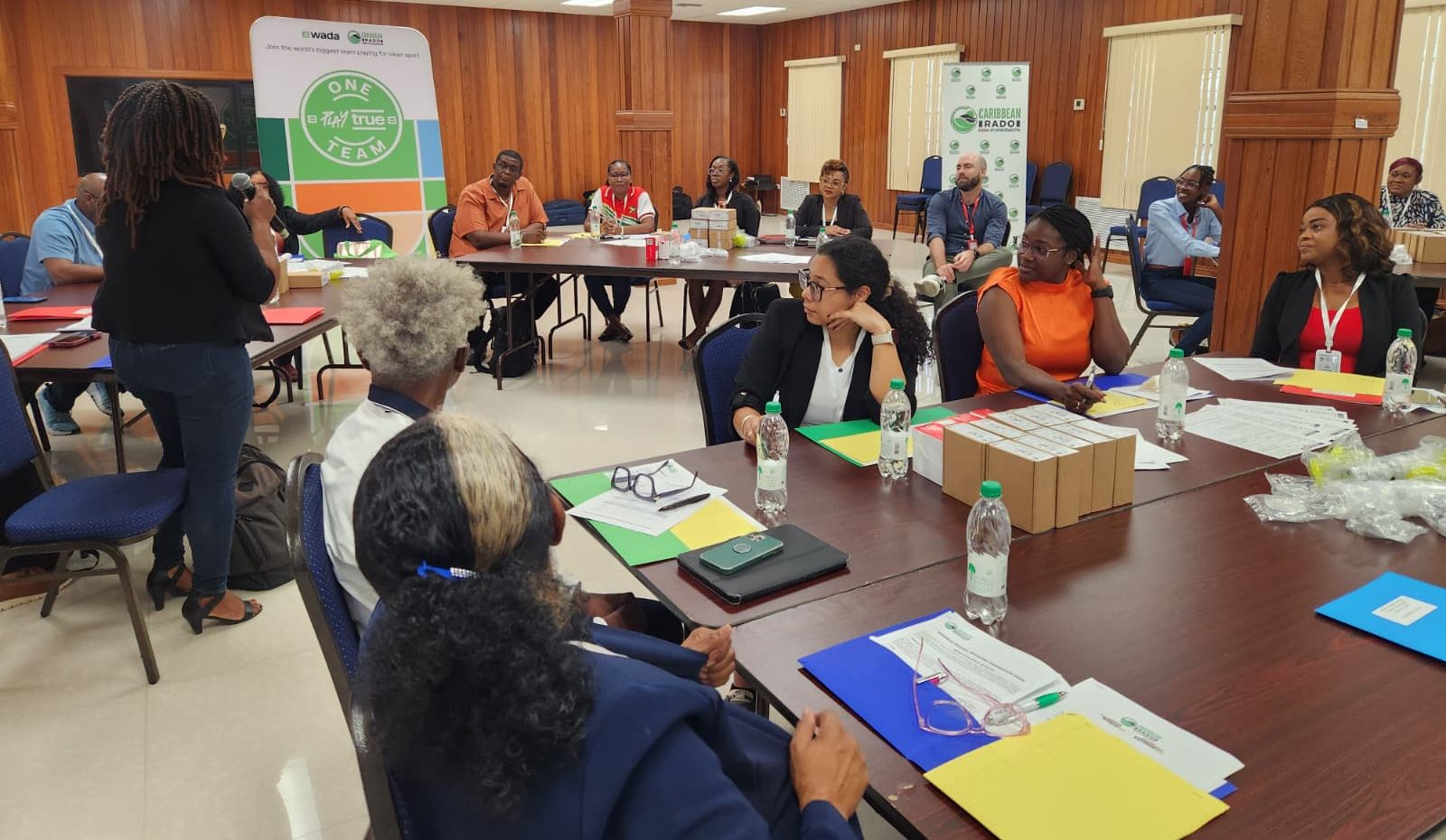
The main objective of the training was to strengthen anti-doping programmes throughout the region in the area of testing. The training allows participants to meet all requirements of sample urine collection in sport in accordance with the World Anti-Doping Code and the applicable International Standards.
The participating countries along with hosts Guyana were Aruba, Barbados, Curacao, Dominica, St. Kitts and Nevis, St Lucia, Suriname, Trinidad and Tobago, and Turks and Caicos Islands.

